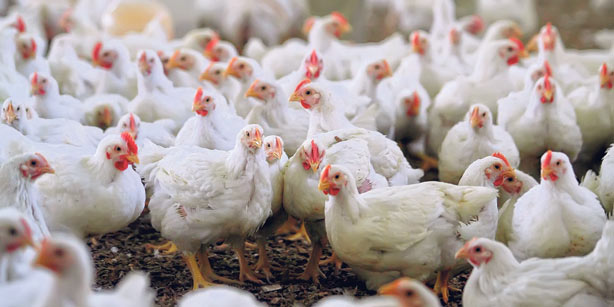Surrounded by avian influenza, Brazil ups poultry exports

Brazil increased poultry exports by 10.6% in volume and 24.5% in revenues during the first 2 months of 2023, while its neighbours report hundreds of avian influenza outbreaks.
According to the Brazilian Association of Animal Protein (ABPA), the country exported a total of 800,100 tonnes between January and February, invoicing US$1.593 billion. During the same time last year, Brazil shipped 723,700 tonnes with a value of US$1.280 billion of payments.
The main destination of Brazilian exports is China, which imported 111,700 tons in the first 2 months of this year, a volume 23.2% higher than that registered in the same period of 2022 (90,600 tonnes).
“The international demand for the Brazilian product continues to rise…”
Returning to second place, Saudi Arabia imported 62,400 tonnes this year (+71.9%), followed by South Africa with 61,700 tonnes (+9.6%), the United Arab Emirates with 61,200 tonnes (-28.5%), Japan with 60,700 tonnes (+10%) and the European Union with 40,100 tonnes (+15.8%).
“The international demand for the Brazilian product continues to rise, with occasional changes being offset by increased purchases from other importing countries,” said the president of ABPA, Ricardo Santin.
According to him, China and the European Union resumed their leading role in chicken meat shipments from Brazil, indicating a trend in purchasing behaviour that should continue throughout 2023.
All countries in South America reported the presence of the virus, except for Brazil, Paraguay, Guyana, and Suriname. Thus, Peru, Colombia, Ecuador, Chile, Bolivia, Argentina, Venezuela, and Uruguay have confirmed cases.
In Argentina, the disease killed 200,000 birds on a farm in the Rio Negro region and recently another 20,000 on a commercial unit in Mar del Plata. Since the first case was detected in wild birds at the end of February, more than 30 outbreaks have been notified.
In Río Negro, there were 10 sheds with 20,000 birds placed in each, and none of the animals survived. The information was also confirmed by the National Service of Health and Agrofood Quality (Senasa).
In Uruguay, the Ministry of Livestock, Agriculture and Fisheries (MGAP) registered more than 70 new cases of avian flu throughout the country after the first cases of the illness in Tacuarembó (northwest) in February.
Brazil investigated 17 suspected cases, but none were confirmed as being the H5N5 highly pathogenic avian influenza virus or another variant of the disease.
Read also
Wheat in Southern Brazil Impacted by Dry Weather and Frosts
Oilseed Industry. Leaders and Strategies in the Times of a Great Change
Black Sea & Danube Region: Oilseed and Vegoil Markets Within Ongoing Transfor...
Serbia. The drought will cause extremely high losses for farmers this year
2023/24 Safrinha Corn in Brazil 91% Harvested
Write to us
Our manager will contact you soon



